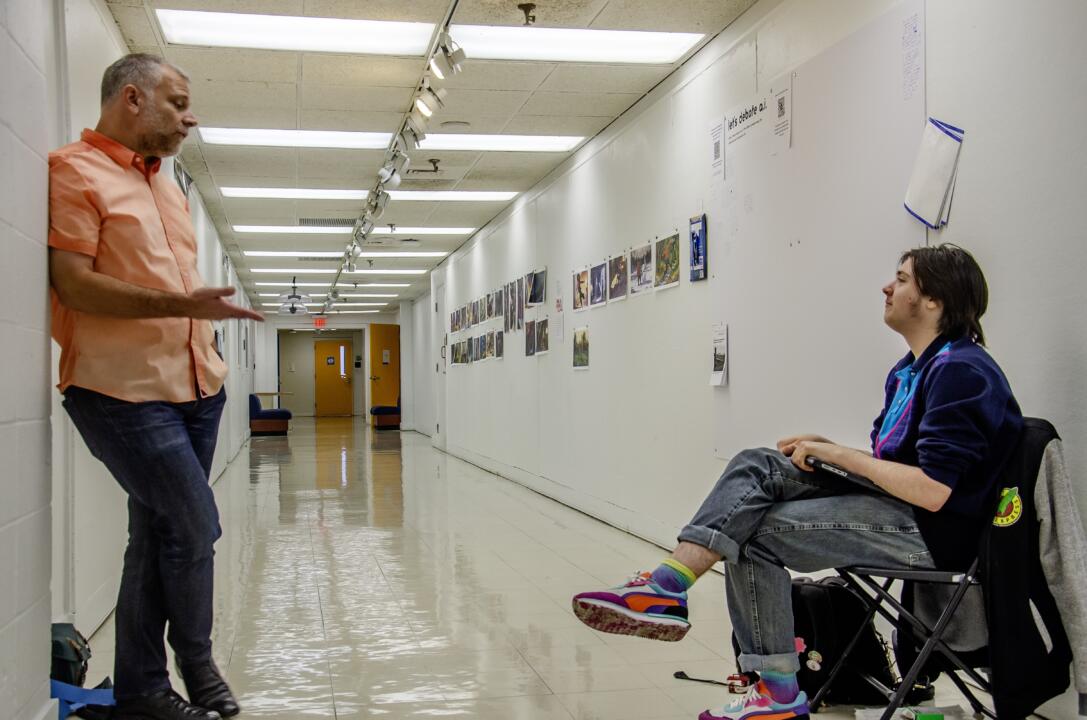Editor’s Note: This article has been updated to reflect new information
While the United States Presidential Election has already concluded with Joe Biden named the 47th President of the United States, weaknesses in America’s voting system are still fresh on the minds of the American people. The University of Maryland, Baltimore County community is no different with both students and professors having their own beliefs on the voting system and its effects on democracy. For UMBC professor of computer science Alan Sherman and Dr. David Chaum, their approach to concerns surrounding voting was to create a revolutionarily accessible voting system, particularly one that is online.
The goal behind VoteXX, as put in the team’s whitepaper, is to create a future where citizens can vote via their phone without compromising their security and privacy. The numerous benefits the team predicts include: “convenience, low cost, more accurate ballot marking, fast reporting of results and improved usability and accessibility, including support for multiple languages and long ballots.”
As stated by the VoteXX website, there is currently no secure online voting system due to internet integrity concerns. Despite the benefits the VoteXX team suggests their system may offer, the security risks and other concerns associated with internet voting need to be acknowledged before such a system can be safely implemented. The team behind VoteXX believe that, with further research and development, their system could do so.
Concerns they have addressed include mitigating voter coercion by offering the ability to flip (change or cancel) one’s vote any time prior to the announcement of election results. To the VoteXX team, this mitigates online attacks by expanding the voting period to three weeks, providing ample time to respond to interference, and mitigating malware by offering end-to-end verification.
However, one question remains for the VoteXX team; would people even feel comfortable giving such a system a place in elections, let alone feel inclined to use such a system themselves?
Senior information systems major Austin Green is skeptical of VoteXX and reluctant to have it actualized.
“I’d be incredibly hesitant to implement such a system. From what I understand, it places a lot of onus on the user and the user’s system,” said Green. “Users are often the most vulnerable part of any system, so I’d say it’s not a question of if state actors such as Russia and China will try to take advantage of this, it’s a matter of how many people they will affect.”
In addition to state actors directly changing votes, Green is concerned about how a project like VoteXX would impact Americans’ view on election integrity. Since 2016, misinformation spread through digital platforms has had an increasing effect on the outcome of elections. Because of this, Green believes that further integrating elections into the online space is a step in the wrong direction.
“One of the ways the 2016 election was allegedly interfered with by foreign governments was through the buying of Facebook advertisements. This was done entirely through the web, without traveling, or any similar hassle,” said Green. “If I’m reading this correctly, VoteXX increases the degree the internet is involved with the election process. Such a system is guaranteed to be a popular target.”
Richard Forno, a Senior Lecturer in the UMBC Department of Computer Science and Electrical Engineering who has worked with Sherman on a previous project, is less hesitant to give VoteXX a chance. Since VoteXX is peer-reviewed by professionals interested in implementing as much integrity as possible into the system, Forno believes the system could work.
“I support the creation of an online voting process, as long as it’s done as correctly and as diligently as possible,” said Forno.
When asked about what he had to say to skeptics, he did agree that implementation would take time for people to be comfortable with.
“Internet voting will be something new and a lot of the time people can be afraid of the unknown or skeptical of the unknown,” said Forno.
He added that he believes internet voting as a valid means of voting is something inevitable that people will eventually have less reservations about.
Forno supports his belief with the fact that other countries have already begun to implement online voting options and that the rest of the world will likely, although slowly, begin to follow. He adds this is especially likely with the increasing integration of technology in the lives of everyday individuals.
Forno explained that VoteXX will not directly or significantly mitigate election interference; this is primarily because there are many factors that go into interference such as state-wide issues, stringent voter eligibility rules and the need to reinforce the security of everyday devices. However, Forno does believe that the increase of voter turnout could be a significant benefit to the voices of more citizens being rightfully heard.
While Green and Forno differ on their beliefs as to the reliability and usefulness of VoteXX, both ground their beliefs in what will be in the best interest of the country.
Article by Sarina Wilson

